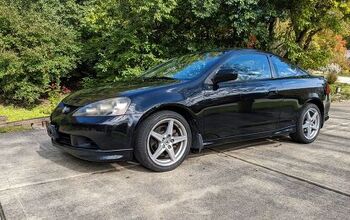Mitsubishi Declares EV Price War, Reduces Range

Mitsubishi wants to attack one of the biggest problems of EVs: Their lofty price. Mitsu’s i-MiEV EV retails for 3.98 million yen ($49,200). Government subsidies will slash a million (yen) off that price. Converted to dollars, that $36,900, still steep. The Nissan Leaf costs 3.76 million yen ($46,500) before subsidies and sells much better than the Mitsumobile. Now, Mitsubishi wants to lop a million yen off the i-MiEV’s sticker price.
“The planned vehicle is expected to be the least expensive electric passenger car in Japan,” writes The Nikkei [sub]. After subsidies, the EV will costs the Japanese buyer less than 2 million yen ($24,700).
Where do the big savings come from? From a punier battery. The existing model is good for 160km (100 miles) per battery charge. The new model will go only 120km (75 miles). The Nissan Leaf claims a range of 100 miles.
If you are in the market for an i-MiEV, save your ticket to Tokyo. U.S. prices are much lower. The 2012 i-MiEV will carry a base MSRP price of $27,990, before the Federal $7,500 EV tax credit and state incentives. In states like California and Hawaii that dole out extra government money, the effective i-MiEV price could be as low as $15,500.
Nissan will most likely pick up that gauntlet and throw it right back. And what we’ll get is the first round of the EV up-sell wars: “Now, Sir, may I write you down for the bigger battery? We don’t want your wife to run out of juice in a bad neighborhood, right?”

Bertel Schmitt comes back to journalism after taking a 35 year break in advertising and marketing. He ran and owned advertising agencies in Duesseldorf, Germany, and New York City. Volkswagen A.G. was Bertel's most important corporate account. Schmitt's advertising and marketing career touched many corners of the industry with a special focus on automotive products and services. Since 2004, he lives in Japan and China with his wife <a href="http://www.tomokoandbertel.com"> Tomoko </a>. Bertel Schmitt is a founding board member of the <a href="http://www.offshoresuperseries.com"> Offshore Super Series </a>, an American offshore powerboat racing organization. He is co-owner of the racing team Typhoon.
More by Bertel Schmitt


































Comments
Join the conversation
In 1911 electric cars were expensive because of the battery. In 2011 electric cars are expensive because of...
"The existing model is good for 160km (100 miles) per battery charge. The new model will go only 120km (75 miles). The Nissan Leaf claims a range of 100 miles." Can someone at The TRUTH About Cars do a little fact-checking about the Nissan Leaf battery range, and stop blithely pushing the Nissan world-is-roses "100 mile" marketing lie? Nissan oversold the Leaf at 100 miles, and that number is only good under best-case conditions. It is only achievable via hypermiling over low-speed courses. It is NOT achievable in normal real-world driving. If you are going to give any range for the Nissan Leaf, please use the actual range as rated by the EPA. That means, the Nissan Leaf should be noted as providing an estimated 73 miles per full charge. Otherwise, I'll expect you to consistently tout the Chevy Volt as a 231-mpg car, without any caveats or other crap. After all, we can't be having any anti-GM bias by TTAC here...
Good idea. It makes a lot of sense for people who want to use this car as strictly a city commuter. Look at how much money they were able to save by simply reducing battery range by 25%. I bet they cut a nice bit of weight off of it too.
In the 70's fuel crisis, there were lines at the gas station (in PA, we had even/odd license days to reduce the lines), and in one period, you were only allowed 10 gallons/visit. And that was in a car that got 10-15 MPG. Luckily for me, I lived close enough to the mill to walk to work; driving was a luxury. For many people other than me, that was true "range anxiety", and I didn't know anyone who could refine their own gasoline at home, either. Let's hope that conditions beyond our control don't cause a repeat of this scenario, as we're no less dependent on "the juice" than we were 35 years ago.